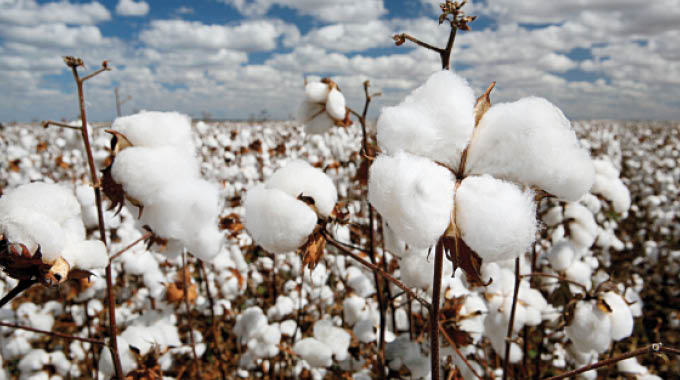
The story of cotton, the ‘white gold’ was no longer interesting to farmers throughout the country due to viability problems and decline in cotton prices on the international market.
Seed cotton output went down to 28 000 tonnes in 2015 which was the lowest production figure ever recorded in Zimbabwe. The country, during its peak period, would produce an average of 250 000 tonnes of seed cotton per season.
The story looked all gloomy and there was no light at the end of the tunnel as most farmers abandoned cotton production and went into other crops like maize and small grains.
The 2015 National Budget brought hope to all cotton farmers when Treasury announced the Presidential Free Input Scheme which was aimed at reviving the cotton sector that was on its knees.
The scheme provided seed, fertilisers, chemicals and a knapsack to a farmer as a one hectare package.
The Cotton Company of Zimbabwe Limited became the administrator of the scheme since 2015 and provided agronomic training and advice through its own agricultural extension officers.
For the 2016/2017 season, a total of 75 000 farmers participated in cotton production and an output of 74 000 tonnes of seed cotton was realised, while the 2017/2018 season saw 142 700 tonnes of seed cotton being produced from a total of 387 000 farmers/households countrywide.
During the 2018/2019 season a total of 73 000 tonnes of seed cotton was recorded countrywide.
The output for the 2019/2020 season stood at 91 000 tonnes of seed cotton.
Cotton or the “white gold” as it is affectionately called is important to the country in that it earns foreign currency for the country, creates employment, produces cotton seed which is used for oil expressing by oil expressing companies and also livestock feed.
The crop also provides a safety net to the rural vulnerable farmers as it alleviates poverty for small holder farmers who sometimes fail to get adequate funding to do their farming activities.
During the 2019/2020 season, the company partnered various commercial farmers countrywide who had the land, irrigation equipment and the will power to grow cotton.
The partnership resulted in a total of 573 commercial farmers getting into cotton production and a good yield is expected. Cottco is upbeat as the 2021 marketing season beckons against a background of good rains and an increase in the hectarage planted.
